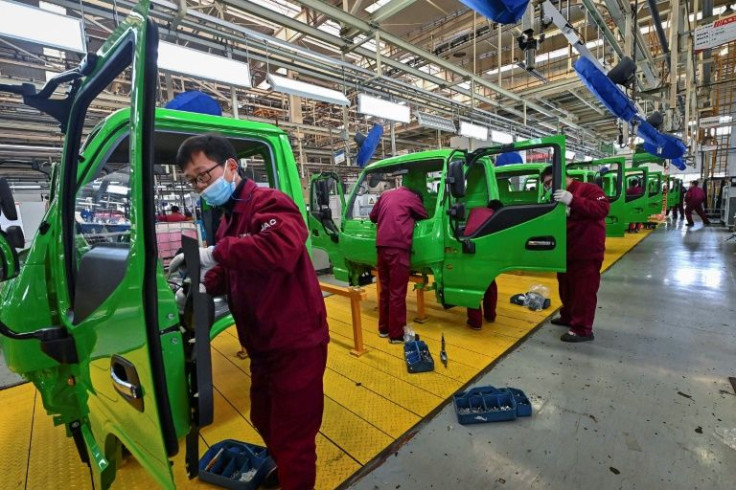COVID And The Russian-Ukraine War Could End China's Manufacturing Dominance

China's prolonged Covid lockdowns and close ties to Russia during the Russian-Ukraine war could end its global manufacturing dominance.
For years, China played an essential role in the global division of labor as a reliable, low-cost producer of products designed and developed in the U.S., Europe, and Japan. That's thanks to low labor costs and the mastery of the global supply chain, which helped its factories dominate global manufacturing.
Nowadays, China is about to lose this dominance, as it is no longer a reliable, low-cost producer. First, labor costs have been soaring, outpacing those of other emerging and frontier economies, as the pool of excess labor trapped in the agricultural sector is drying up. For instance, in 2020, manufacturing labor costs per hour were $6.5 in China, compared to $4.82 in Mexico and $2.99 in Vietnam.
Second, the persistence of strict Covid lockdowns, even as the rest of the world has shunned them, makes China a less reliable partner to overseas product designers and developers.
"The heavy-handed Covid lockdowns have led many industries to question the operational wisdom of producing in a country with a great number of manufacturing clusters that can be shut down by one phone call," Juscelino Colares, a professor of business law and co-director of the Frederick K. Cox International Law Center, told International Business Times in an email. "They have also helped accelerate the reshoring, nearshoring, and onshoring trends that started under the Trump-Xi tariff war but never went away, despite a dovish, largely globalist administration in Washington."
Third, China's cozying up to Russia during the Russian-Ukraine war is prompting the U.S. and European governments to take policies to encourage more manufacturing at home, even if that means a higher cost.
"The Russian invasion in Ukraine has advanced China's geopolitical position by downgrading its biggest neighbor and Asian landmass rival to the status of a vassal state.," says Colares.
But he thinks that such a “victory” has come at a great cost, the risk of China decoupling from the West.
“China has lost Europe in the process, and, with it, its ability to exercise its influence on a fractured West," he adds.
Ryan Monarch, Assistant Professor of Economics at Syracuse University, sees a big problem ahead for Chinese manufacturing, too.
"The strength of Chinese manufacturing is due partly to the growing reliance of companies around the world on low-cost Chinese inputs in their supply chains since China joined the WTO in 2001," he told IBT in an email. "Rising tensions between the United States and China, especially during the trade war of 2018-2019, had led some companies in Western countries to reconsider this reliance on Chinese products, but, much more so than the Russia-Ukraine crisis, China's ongoing "Covid Zero" policy has greatly accelerated the desire to diversify. Chinese government lockdowns, even if they only last a few weeks, have wreaked havoc on supply chains and have encouraged more and more companies to reduce their reliance on China, even if it means higher costs in the short run."
Bryan Fried, the Chairman and CEO of PANGEA Global Technologies, sees more companies searching and considering bringing their manufacturing back to the U.S., in response to continued delays in Asian factories, in some cases, as much as a year. And he brings a good example, the LED industry.
"As indoor farming experiences significant growth, the LED grow light industry is increasingly pivoting to domestic manufacturing to fulfill highly customized orders in a shorter amount of time to avoid congested ports altogether, and in some cases, prices are even comparable," he told IBT.
The bottom line: China is no longer the low-cost, reliable global manufacturer partner to western product designers and developers it once was. These partners are looking elsewhere to other countries and back home for new partners to fill this role. And that could end China's manufacturing dominance sooner rather than later.
© Copyright IBTimes 2024. All rights reserved.






















